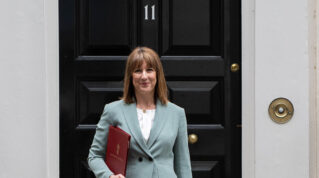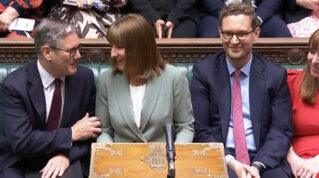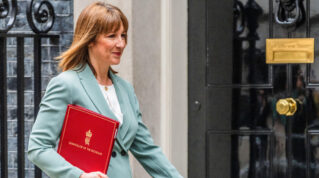Thousands of schools face “severe financial hardship” because of a technical funding change made “without warning” which meant that they got a measly 0.5 per cent per-pupil increase.
Minimum per-pupil funding levels (MPPFLs), which guarantee trusts and councils a certain amount of cash for each child they teach, usually rise at the same rate as school funding increases each year.
Since 2018, the rates have risen by between 3 and 7 per cent. But this year, the government only increased MPPFLs by 0.5 per cent, despite school funding rising overall by 1.9 per cent.
In its submission to the Treasury ahead of next months’ budget, the Confederation of School Trusts (CST) warned the change was made with “no warning”.
Trusts with schools funded at the minimum faced “severe financial hardship right now”, they added, calling for emergency funding for those in difficulty.
Low rise now baked into funding system
Analysis by Schools Week of funding allocations identified 4,337 schools slated to receive only a 0.5 per cent rise in per-pupil funding this year.
As well as being below the average funding rise, it is well short of the 4 per cent inflation level recorded in December.

Minimum levels are due to go back to rising in line with overall funding again next year, so will increase by 1.4 per cent. But, as each year’s funding becomes the baseline for the next year’s rise, the 0.5 per cent increase is now baked in.
The “one-off change in policy will have a lasting effect on baseline funding”, the CST warned.
Oasis Community Learning has 20 affected schools. Chief executive John Barneby said “the reality is that it is incredibly tough”.
Leaders “continue to do everything possible to mitigate against the impact of these challenges, with a real focus on retaining and recruiting the staff fundamental to the delivery of a high-quality education for every young person”, he said.
David Boyle, chief executive of Dunraven Educational Trust, which has two affected schools, has established joint finance working groups to “look at all options to minimise the impact in the classroom”. This includes things like upping trading income through lettings.
‘This is clearly untenable’
But the government “needs to be aware that there will come a point when sustainability, safeguarding and security become challenged if not compromised for a significant number of schools”.
“This is untenable clearly, but we can’t keep doing more with less,” Boyle said.

Julia Harnden, funding specialist at the ASCL leaders’ union, said minimum levels “historically… delivered protection to per-pupil allocations in real terms”, but that has “not been maintained”.
The change comes at a time of severe financial pressure on schools, trusts and councils.
Last year, the CST’s poll of chief executives found just 46 per cent reported feeling very or quite confident about the financial sustainability of their trust. This was down from 77 per cent in the previous year.
Sutton Trust polling released last year also showed the proportion of teachers reporting cuts to school trips had risen from 21 to 50 per cent. Two-thirds of heads said they had had to cut the number of teaching assistants, up from 42 per cent.
The government said money for schools funded at the minimum would actually rise by more than 0.5 per cent because of an additional grant they received to cover some of this year’s teacher pay rises.
However, this was cash that was effectively already spent on covering increased teacher costs.
Extra funding only for ‘mismanaged finances’
The CST also said that, while additional funding was available from the Education and Skills Funding Agency, this was “designed for those that have mismanaged their finances”.
MPPFLs were introduced as a transitional measure as the sector gradually moved to direct funding under the national funding formula. It was introduced in 2018 to level up historic unfairness in funding.
However, the full formula has not been fully implemented yet, and cash still goes to councils who can apply their own formula.
The DfE wants to move to direct funding by 2027 but has not announced how and when transitional measures will be removed.
The CST warned that minimum levels “remain an anomalous element of the NFF, with no clear policy intention and distributional inconsistency”.
It called for a “plan and timeline for the development of an NFF that does not require the prop of MPPFLs”.
A DfE spokesperson said schools on minimum per-pupil levels had “benefited from above-average increases in per-pupil funding compared with other schools, having increased on average by 6 per cent and 4.4 per cent per year between 2018-19 and 2023-24”.
















Your thoughts